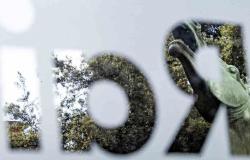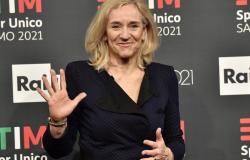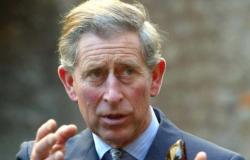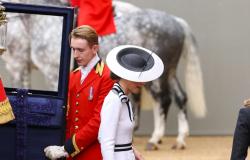(by Mauretta Capuano) YU HUA, THE CITY THAT IS NOT THERE (FELTRINELLI, PP. 384, EURO 20.90). Feelings, desires, dreams, but above all double loves and husbands in China at the beginning of the twentieth century, from north to south. In his new novel, ‘The city that isn’t there’, which has just arrived in Feltrinelli bookstores, the bestselling Chinese writer, one of the most translated in the world, Yu Hua, gives voice to the opposites and contradictions of relationships and life.
“Contradictions are always present, even in contemporary society where they manifest themselves in different ways. Human relationships today have become more frightening than those I describe in the novel, at this moment they are also determined by weapons. Just think of the ongoing wars: the conflict in Ukraine, the dramatic Palestinian and Israeli question” Yu Hua, multiple Nobel candidate and winner of the Grinzane Cavour Prize in 2012 with ‘Vivere!’, told ANSA. At the recently concluded Turin Book Fair the Chinese writer was a small case, chased by fans and many young people who asked him for photos and selfies, he saw his meeting moved to the 500-seat Sala Oro so as not to leave anyone and Feltrinelli out sold out its copies at the stand.
But what is ‘The City That Doesn’t Exist’? I don’t know either. This city in the book is called Wencheng like the original title of the novel, but you can’t find it on the map. After the release of the book, a saying was born that is now quite fashionable in China: ‘in the hearts of all of us there exists a Wencheng'” says the writer who was born in Hangzhou in 1960. “This idea of the city that does not there also means that in each of us there is something that we cannot find in our lives” explains Yu Hua. What effect did being nominated several times for the Nobel Prize for Literature have on you? “It’s something special because every year there is only one writer who can win the Nobel, but there are many excellent authors. So I’m not sure that the Nobel is the label to say that an author is a great writer. Calvino, among my favorites, was a great writer but he didn’t win the Nobel.”
A TV author at the beginning of his career, Yu Hua was also the star of a reality show which made him popular. “I haven’t written for TV for 30 years now. At the time we didn’t make a living writing novels, we didn’t earn enough from literature. When the sales of my books took off I stopped working for TV because what I like to do is to write literary stories. The reality show I participated in for two editions, last year and the previous one, was a kind of Island of the Famous in Chinese. It was called ‘I read on an island’. It was fun because it was there. there were other writers too, many were friends.”
The China you describe is that of the social and political chaos of the end of a thousand-year-old empire, torn apart by internal strife. A northern man lands in a southern city under a snowstorm with a little girl in his arms: he is looking for the little girl’s mother and a city that isn’t there. But together with this story there are many other stories of men, women, ancient and disappeared professions that make up an epic. How do you see China today and the relationship with Europe? “More than 40 years have now passed since the phase of the so-called economic ‘reform and opening’ at the beginning of the 1980s. We are entering the 46th. From an economic point of view, the development model has now reached a turning point, crucial.
Changes certainly need to be made, a new era is opening up. One of the most sensitive aspects is the problem of intellectual unemployment, many university students cannot find work. The relationship with Europe is a complicated question because in reality the relations between Europe and China include those between China and Italy, China and France, China and Germany, but with each country there are different relationships due to the specific characteristics of each reality.
It is difficult to talk about relations between Europe as a whole and China because in every EU country national interests prevail over European ones.”
The City That Doesn’t Exist is your sixth novel, but you are also the author of short stories. Are you working on anything else? “I’m writing autobiographical stories, which concern my childhood and that of my son. A chapter book will be released in which our childhood stories are linked” anticipates the writer.
Reproduction reserved © Copyright ANSA






